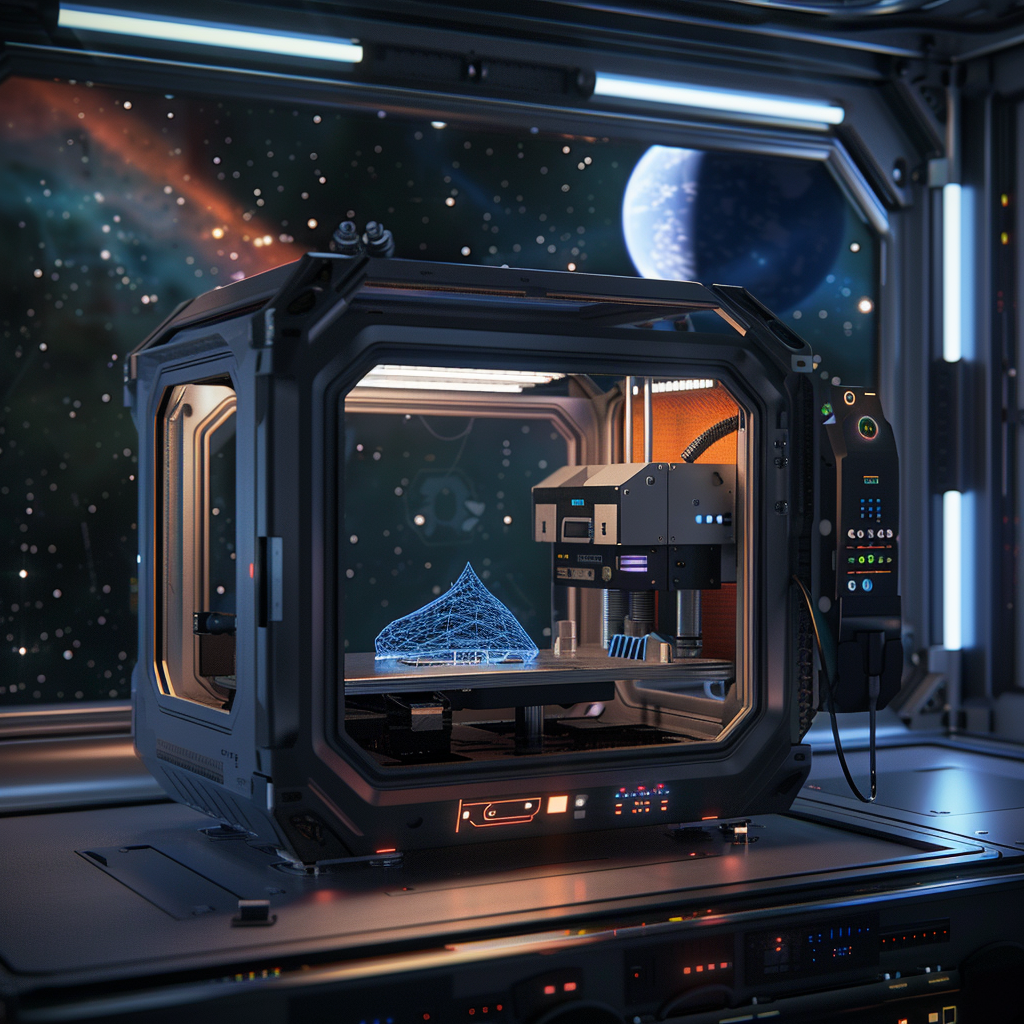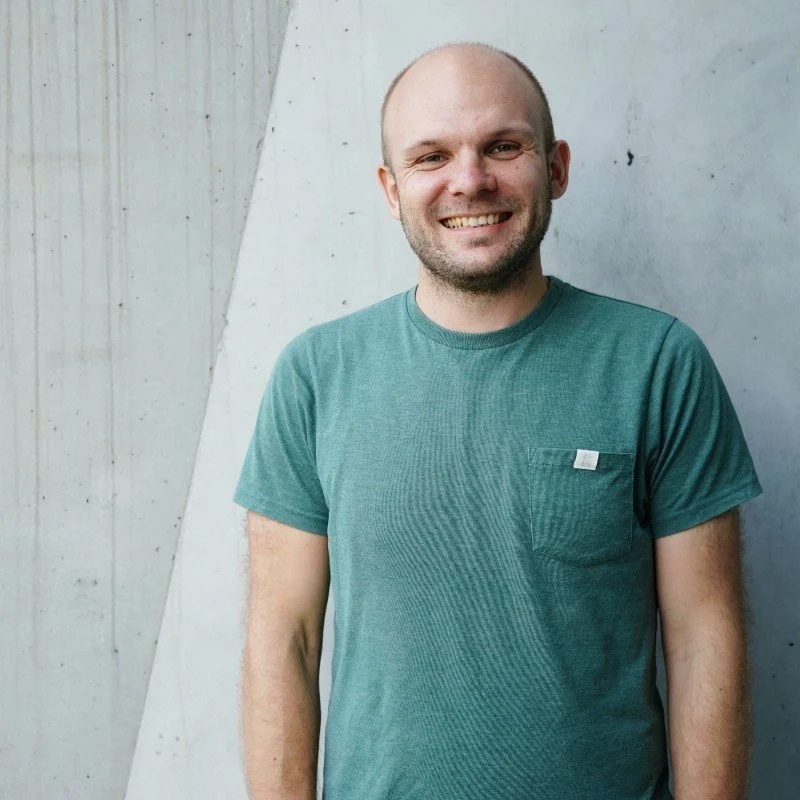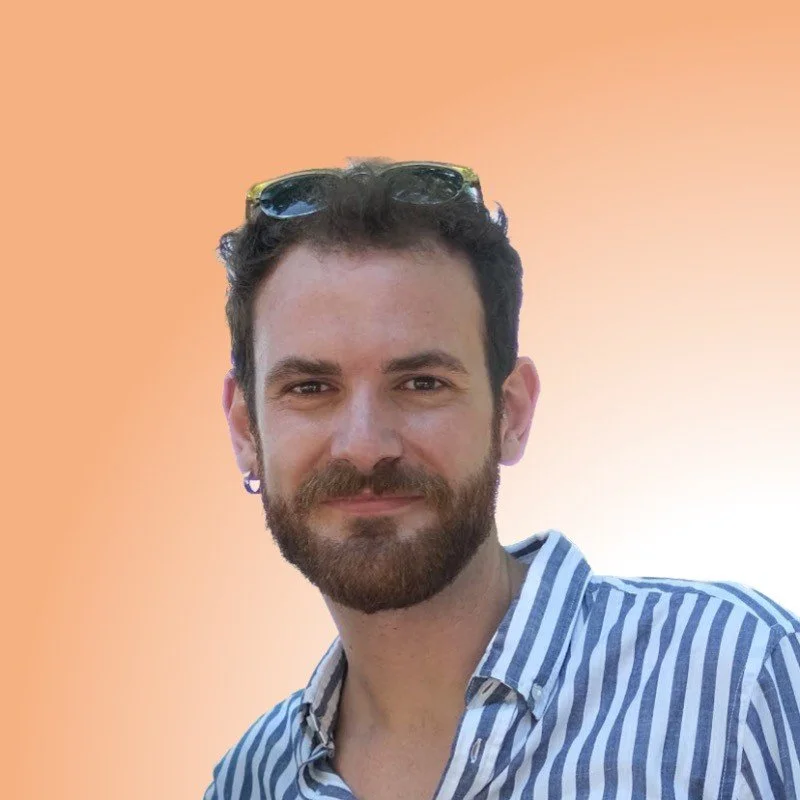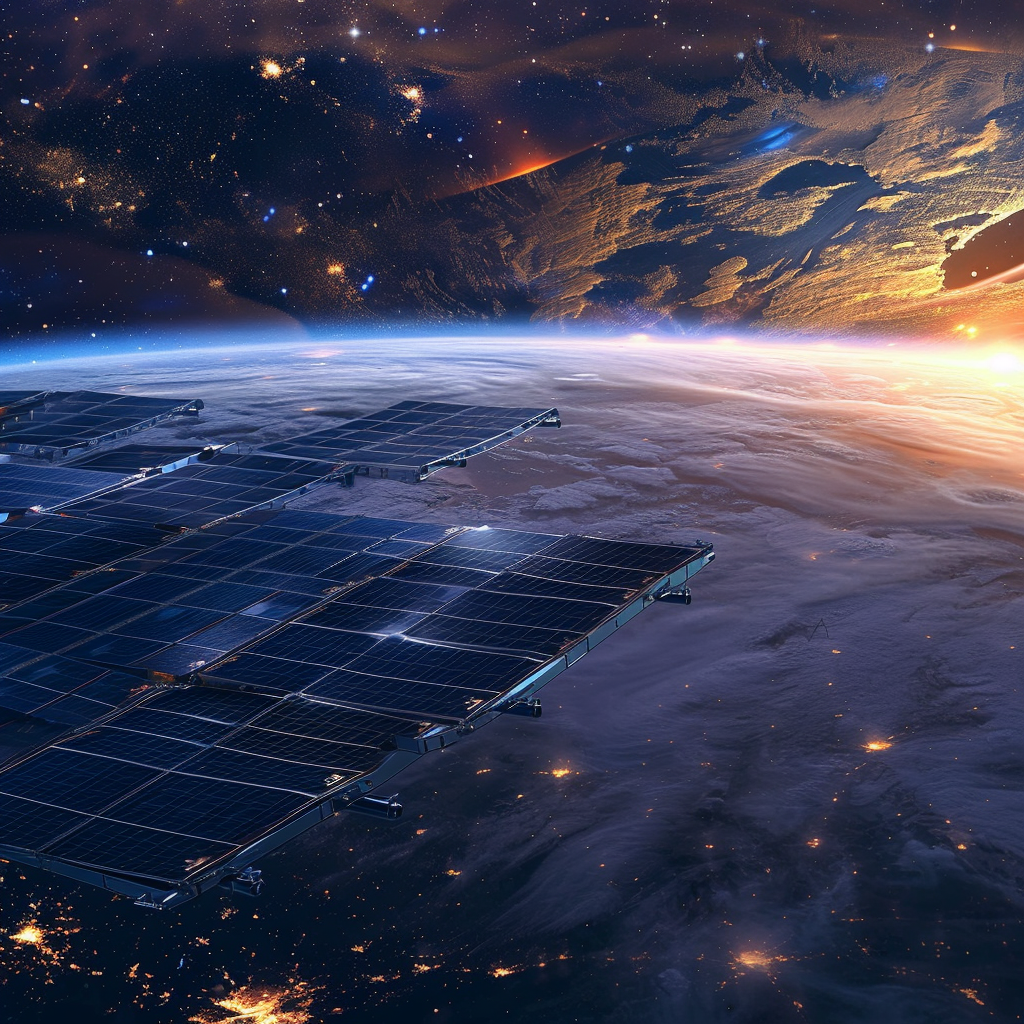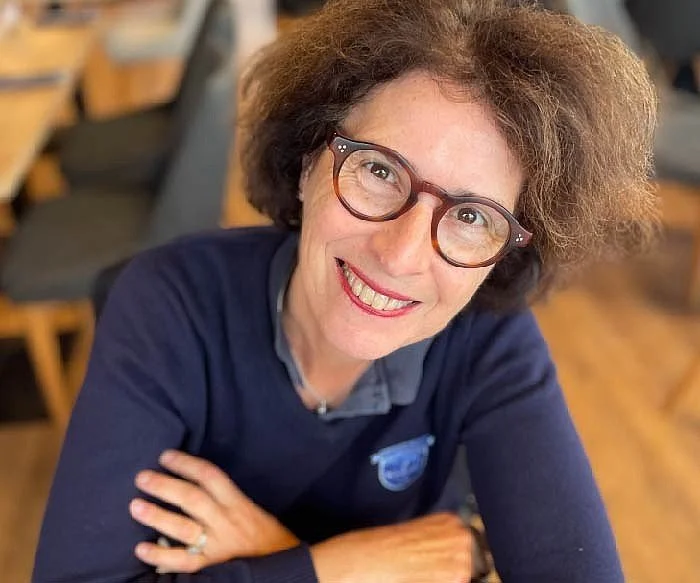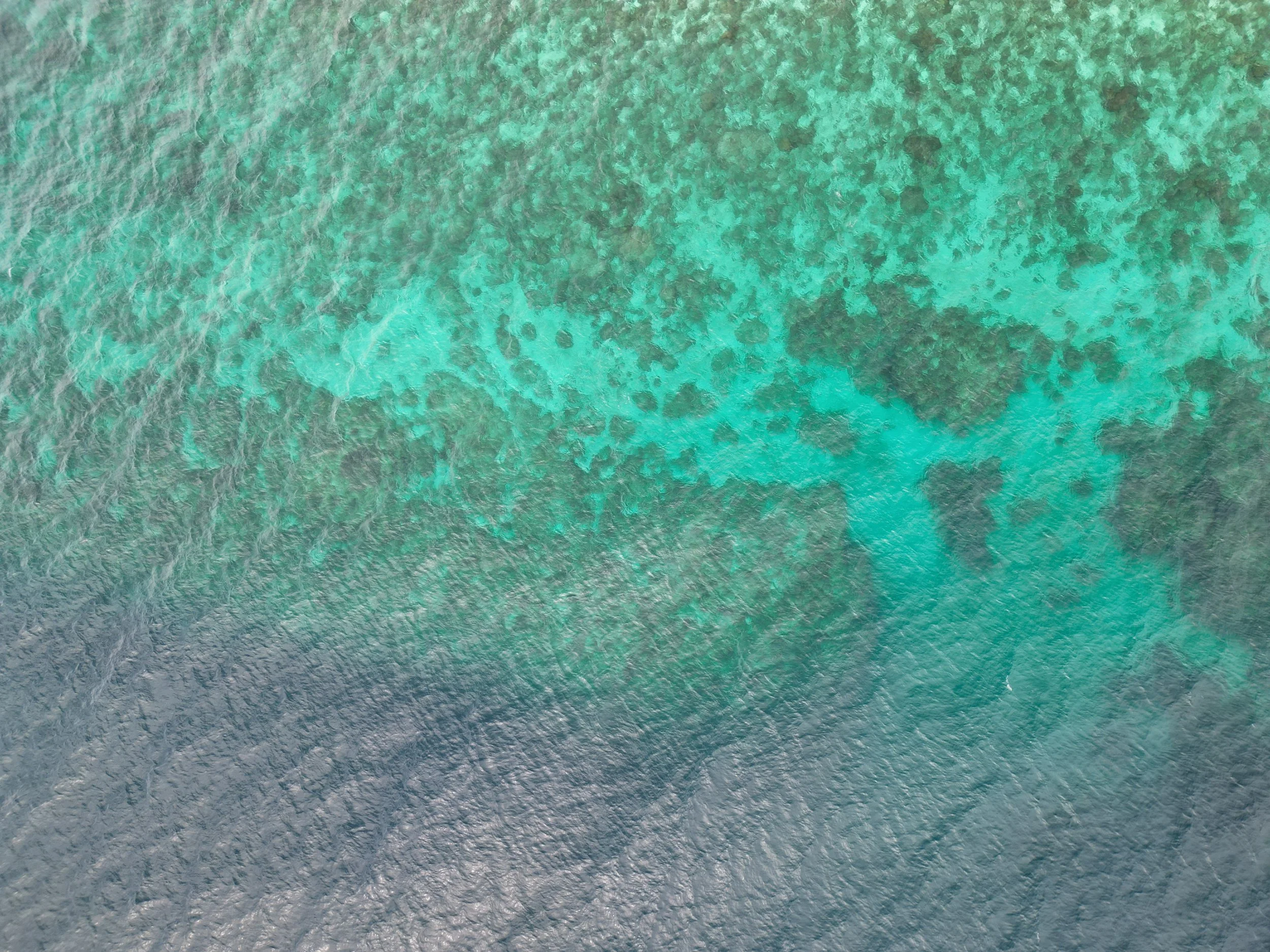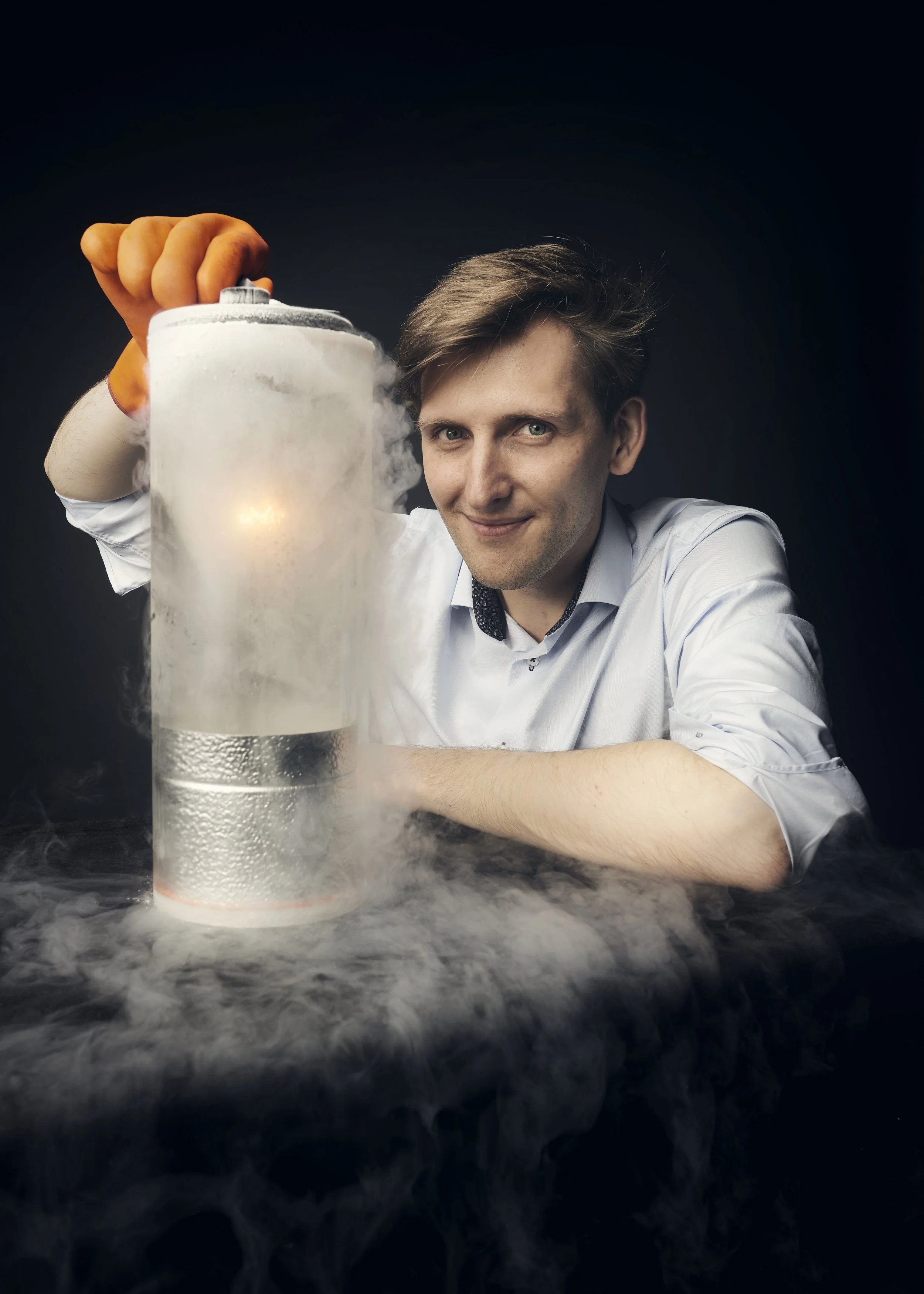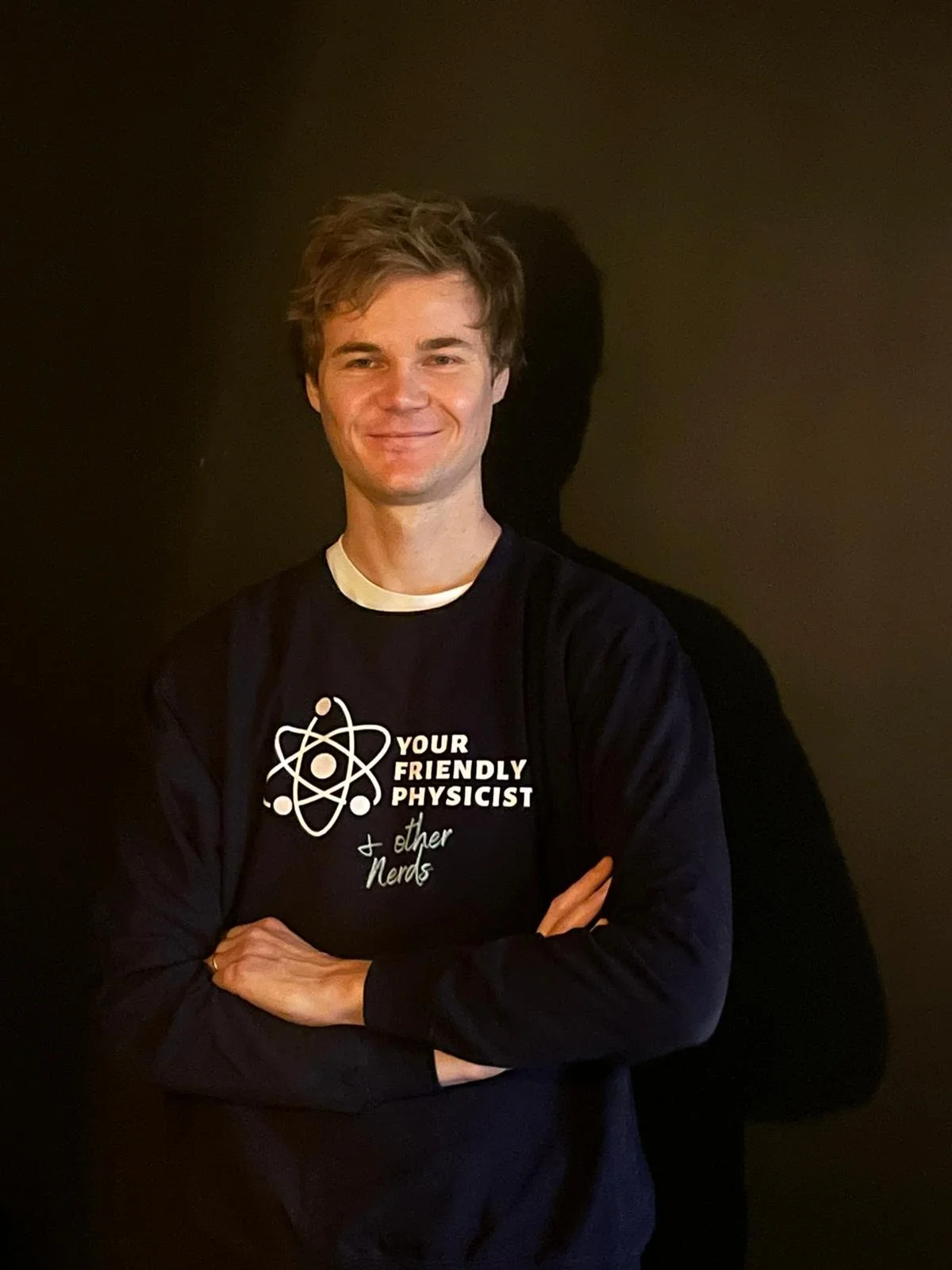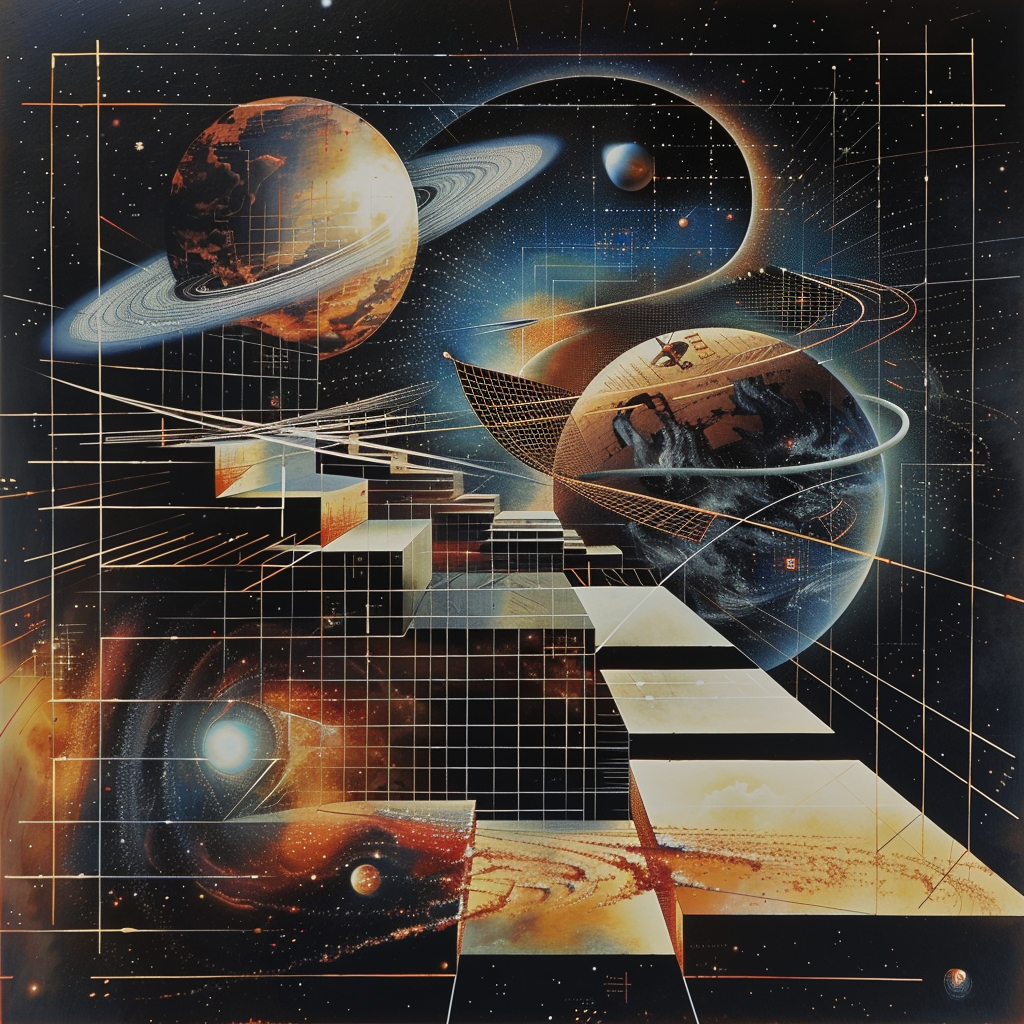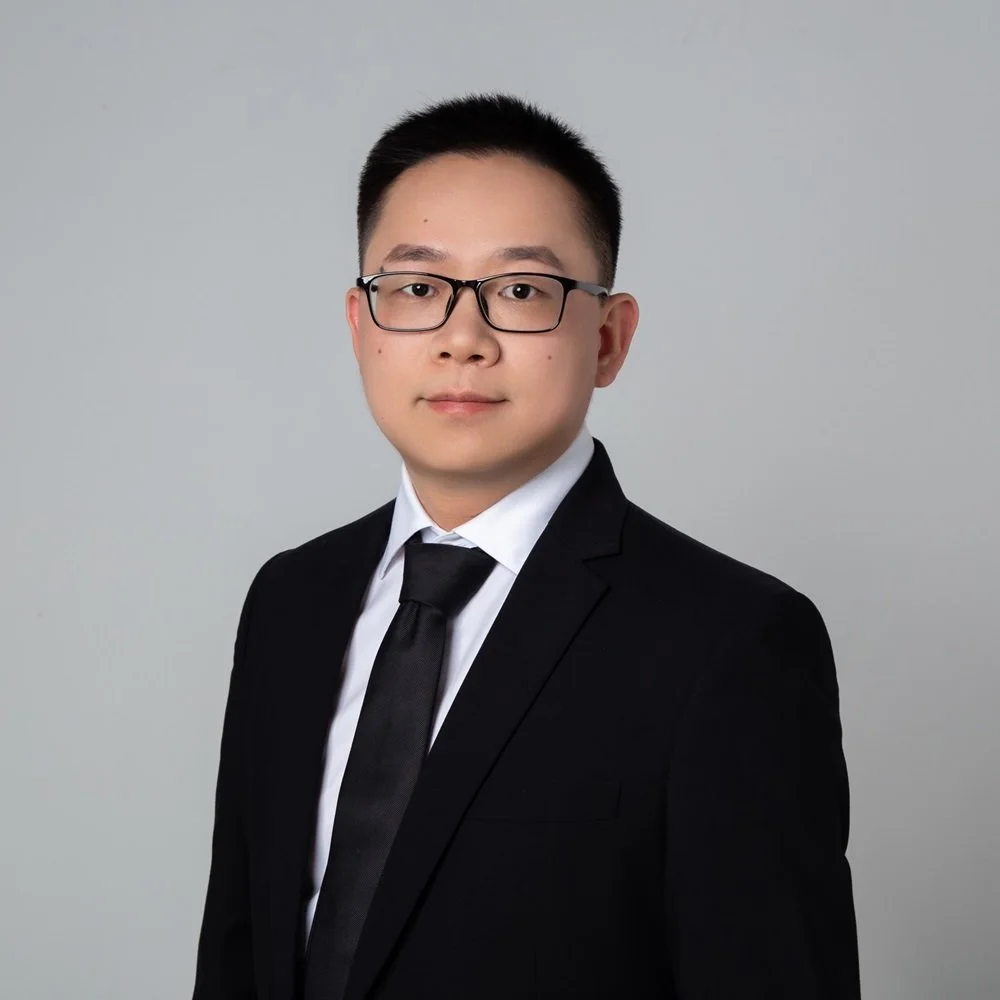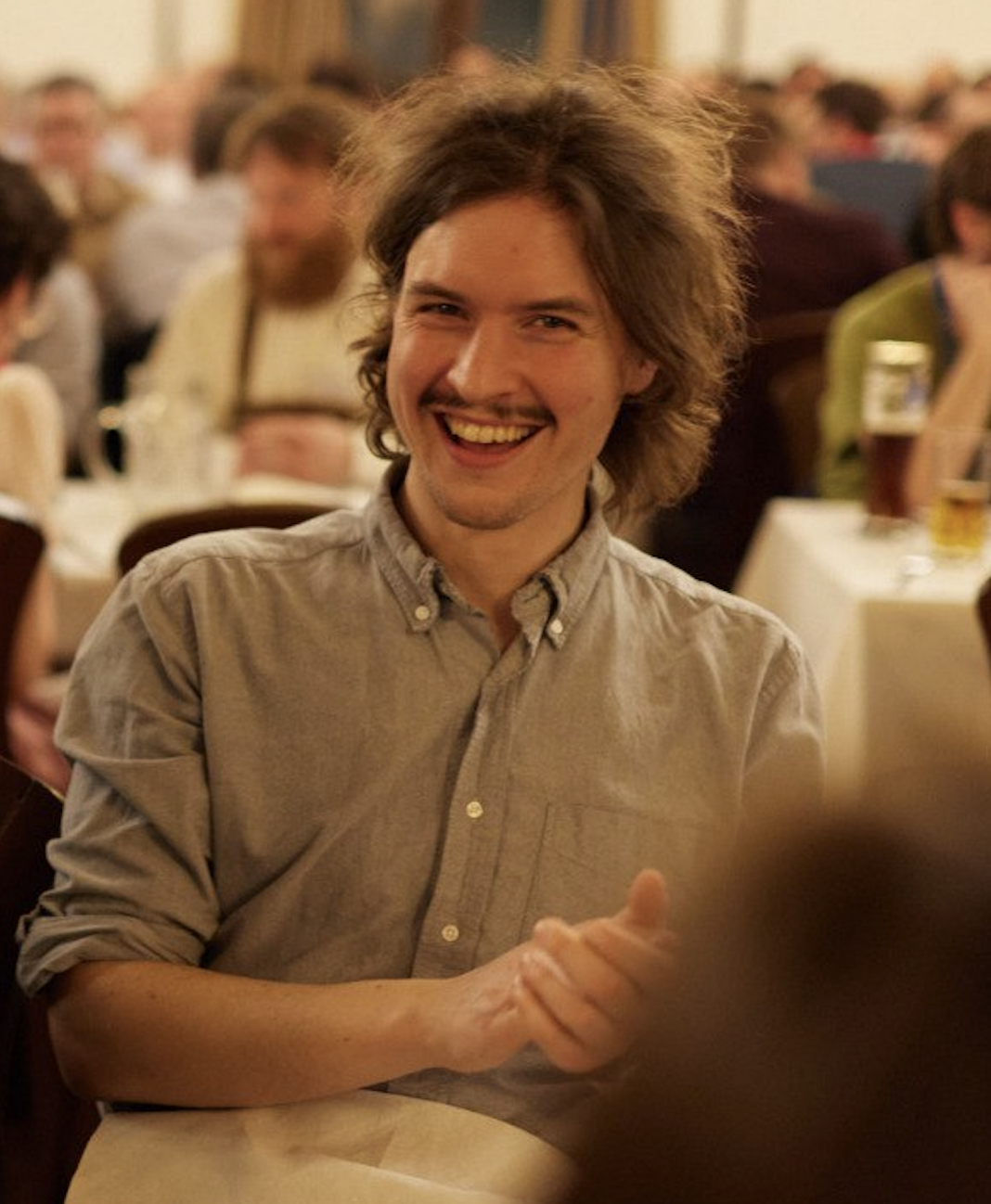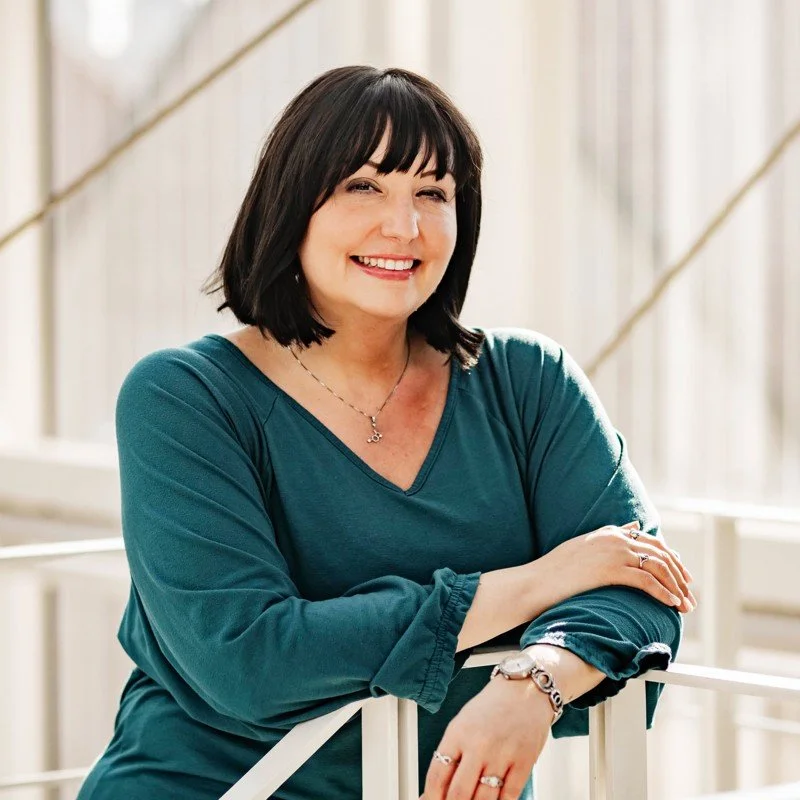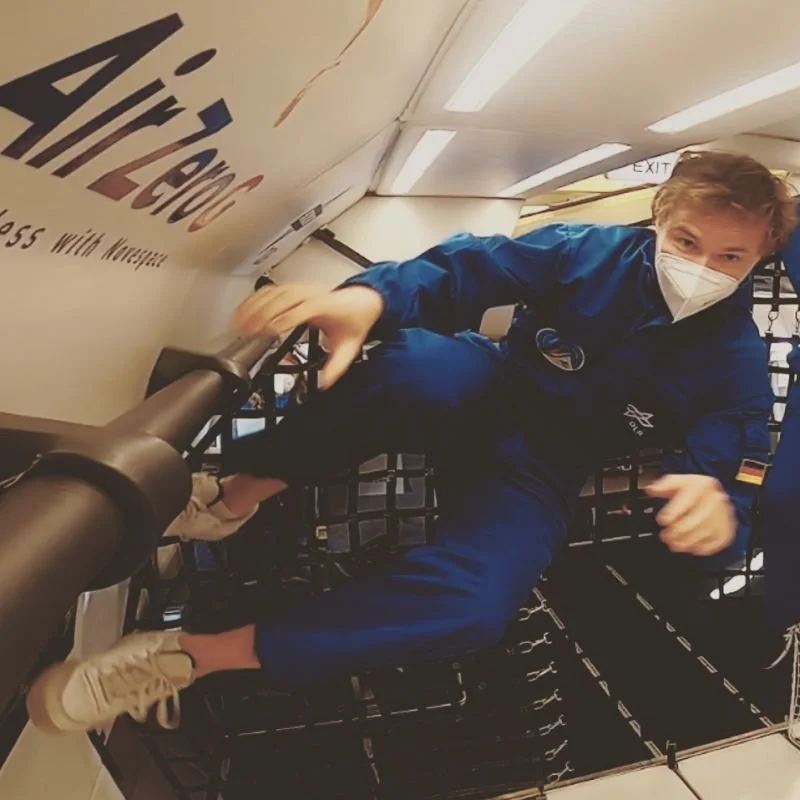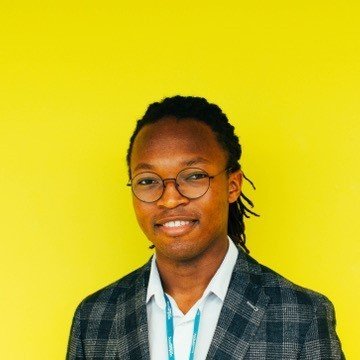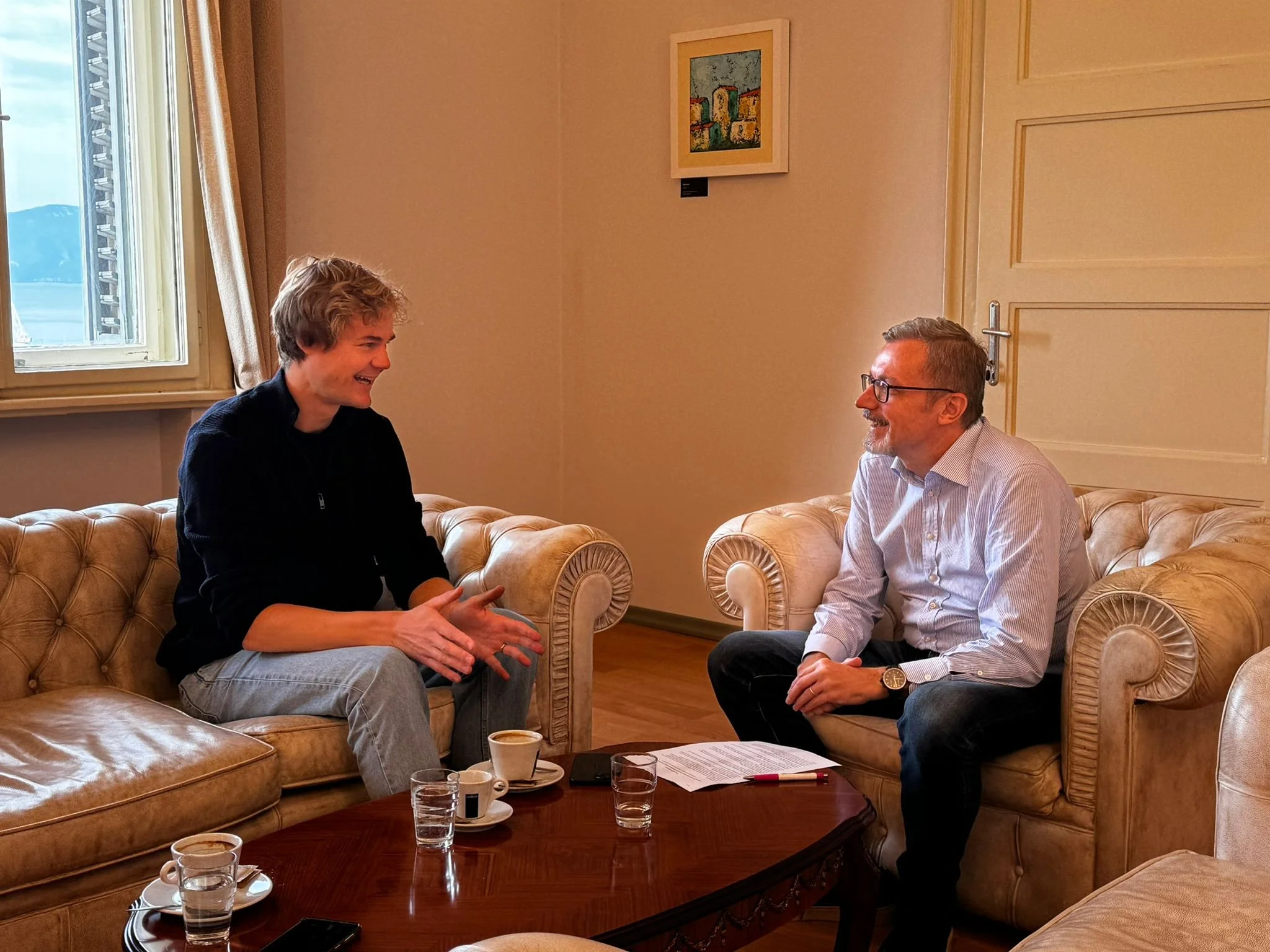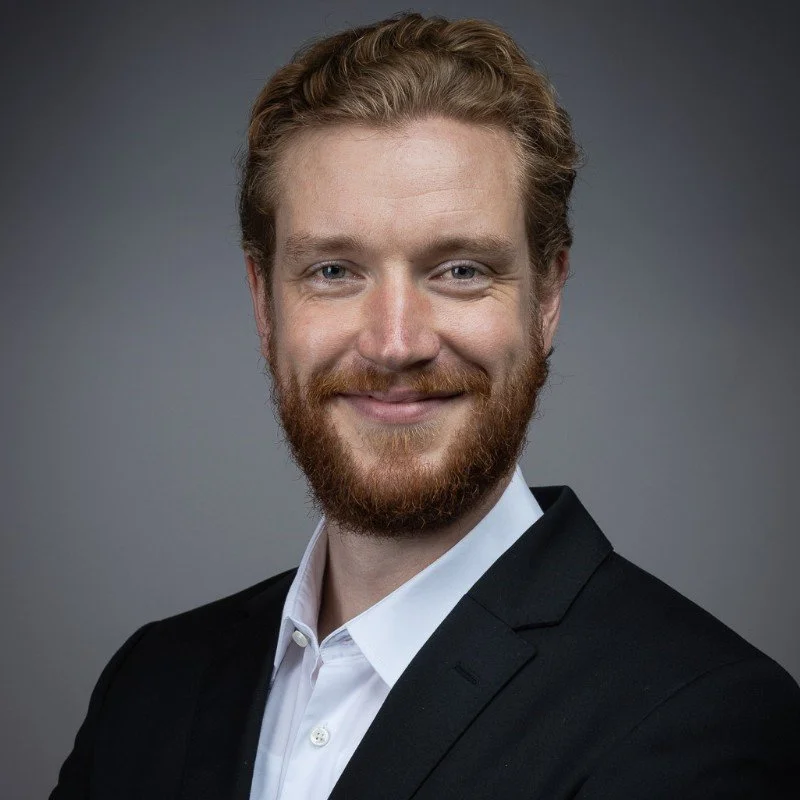
“Some of the greatest stories I have ever heard, have been told in labs, during nightshifts on beamtimes, or in the pub after long conference days!”
Lucas Kreuzer
Your Friendly Physicist & other Nerds
According to the Internet, nerds spend inordinate amounts of time on unpopular and non-mainstream activities, which are generally highly abstract, or relating to topics of science fiction and fantasy. Well, isn't that the perfect description of a scientist?
I am in conversation with scientists that shape the world we live in today and tomorrow. We take a close look at trends in cutting edge technology, explain how the smallest things influence the big in physics and generally talk nerdy stuff. So stay tuned if you are a newbie to physics and interested to learn about the world of friendly scientists or if you are up for a PhD worthy nerd talk.
-
![Podcast Your Friendly Physicist & other Nerds with Lucas Kreuzer]()
Pros & cons of academia and industry
Shambhavi (her friends call her Sana) did her PhD at the Chair of Functional Materials at the Technical University of Munich and decided afterward to leave the academia for a new adventure in industry. In this episode, Sana tells us about the challenges she faced, the questions she asked herself, the pros and cons about academia and industry, and where to find help and support. We both hope, her experiences and insights might be of help for some of you out there, who are asking should I stay or should I go?
-
![]()
How to 3D-print stuff without gravity?
Mélanie is a scientist at the Institute of Material Physics in Space at the German Aerospace Center (DLR) in Cologne. Her research is about the development of a 3D printer that is able to print metallic tools in space. This way, future astronauts are able to print their own tools and spare parts, either onboard space stations and spaceships, or potentially on the moon or other planets. In this episode, Mélanie and I are talking about how to realize experiments in space, what it is like to shoot rockets with scientific equipment and experiments into space, and why you always keep an eye on the locations of the reindeer herds in northern Sweden.
-
![Podcast Your Friendly Physicist & other Nerds with Lucas Kreuzer]()
From food waste to sustainable plastic and a fully circular economy
Christian did his PhD in the Wood Materials Science group at the ETH Zürich, where he used wood as sustainable bioreactors. After his PhD sustainability plays a major role in his life: since April 2022 he took on a new mission, which is all about circular economy. As head of research and development at KUORI, he develops innovative materials that are produced from food side streams e.g., banana peels or nut shells. In this episode, Christian tells us what it is like to work in a start-up, how food waste contributes to an improved circular economy, and why the first application of his materials is in shoe soles.
-
![]()
Quantum mechanics in a nutshell
Gian has a PhD in theoretical condensed matter physics afterwards. His research focuses on holography, which is a mixture of quantum mechanics and general relativity. Right now, he is a postdoc at the Karlsruhe Institute of Technology (KIT). Besides, Gian is very talented in explaining complicated things in a simple way. That makes him just perfect for this episode, which is all about the basics of quantum mechanics.
Quantum objects, particle-wave duality, superposition, entanglement, and Schrödinger's cat 🐈📦☠️
Tune in, if you want to understand what's behind these terms, why they are connected to quantum mechanics, and how they are shaping our modern way of life. Quantum mechanics? Yes, to-go, please!
-
![]()
Solar cells in space: Challenges and limits
Lennart did his masters in physics with a focus on astrophysics at the Ludwig Maximilian University in Munich, before joining the Chair of Functional Materials at the Technical University of Munich as a PhD student. His research is about a special type of solar cells called perovskite. These solar cells are incredibly thin and light-weight while having an astonishing high efficiency.
Thin, light, robust, and efficient: that makes them perfect for space applications! And this is exactly what Lennart is doing. He prepares these perovskite solar cells, mounts them on a rocket, and shoots them into space 🚀🛰️⚡️
How are these solar cells performing in space? How are different types of solar cells shaping the future of our society? And what can we learn from space technologies to solve problems down on Earth?
Tune in for a nerd talk about solar cells, rocket flights, and space technologies! 🤓🚀⚡️
-
![]()
A career in-between industry and academia
Valérie André studied Physics at the Université Pierre et Marie Curie in Paris, before she joined the big chemistry company BASF in Ludwigshafen, Germany. As a Senior Manager for Scouting and Strategy at BASF, she was responsible for the relationships of BASF with universities and research institutes.
Valérie shares inspiring insights on how to bridge the gap between the industry and academic world, providing a unique perspective that's of great interest to anyone looking to make their mark in both academia and industry.
Whether you're a student, professional, or someone just curious about the crossroads of academia and industry, this episode is packed with gems to help you thrive in both domains.
-
How to save a coral reef?
Coral reefs are important ecosystems and biodiversity hotspots. Many species of fish, invertebrates, and other organisms depend on coral reefs for their survival. 🐠 🦑 🦀 🐚
Sadly, more and more coral reefs die, due to warmer and more acidic oceans, overly destructive fishing methods, and plastic waste.
But there is also some good news: Many projects around the globe have the mission to regrow and restore coral reefs. Last week, I visited one of these projects - the Amun Ini Coral Reef Restoration Project, which is located in the Philippines. Together with the co-founder Bigs Eggert, I discussed how to regrow corals, what challenges this brings along, and why the Amun Ini project is not only important for the ocean but also for the local community here in the Philippines.
-
![]()
How to become a physics showmaster!
Matthias studied solid-state physics in Dortmund and did his PhD with a focus on optical spectroscopy of semiconductor nanostructures. Besides being a scientist, Matthias is also a great communicator. As a Physikant, he combines both, science and communication, and brings physics into the spotlight. And he thinks big! There is no fire tornado, imploding oil barrel, or thermodynamic water column that is too large for him and his shows!
What actually is a Physikant and what is he doing? What does it look like behind the scenes of a Physikanten show, and how do the experiments work? Tune in for an exciting story about how to demonstrate complex physical phenomena in an enthusiastic and approachable way! And spoiler alert: Matthias even brought an experiment, which he performed live on the show. He indeed is a great science showmaster!
-
![]()
How to master the basics of academia
Academia often is a challenging, competitive, and energy-draining place. But there are plenty of tips, tricks, and advice that can change that. Since I got many questions and messages from you, about how to master the academic system, I want to do a little community service and share my personal experience with the academic system, and what things helped me the most during my PhD and postdoc.
A big THANK YOU goes to my colleagues, collaboration partner, and the Academic Twitter bubble for a lot of input and feedback on this episode.
-
![]()
What is relativity?
Gian studied physics and did a PhD in theoretical condensed matter physics afterward. His research focuses on holography, which is a mixture of quantum mechanics and general relativity. Besides, Gian is very talented in explaining complicated things in a simple way. That makes him just perfect for this episode, which is all about the basics of general relativity!
What happens when you are near a black hole? Why do we need a 4-dimensional space-time? And where are the everyday examples of special and general relativity? 🚀🌍⏱️
Tune in for a fascinating journey to the wonders of relativity. Along the way, we will meet strange creatures like gravitational time-dilation, Einstein-Rosen bridges, and equivalence principles. Don't worry, Gian is an excellent guide, so you won't get lost!
-
![]()
What are quantum dots?
Quantum dots! 🚀 🔬 👩🔬
This term was first coined by the physicist Mark Reed, and I think he did a pretty good job: with the buzzword 'quantum' it sounds super fancy, and still, no one really knows what it means.
Why is their size so important? Where do we find quantum dots in our everyday life? And why is Elon Musk quite happy quantum dots exist?
All of these questions I discus with Prof. Wei Chen from Shenzhen Technology University. Tune in for a fascinating journey into the land of quantum effects. Along the way, we will meet strange creatures like bandgaps, semiconductors, and perovskite crystals. But Wei is an excellent quantum dot scientist: After receiving his Bachelor's and Master's degrees from the Hubei University, Wei joined the Chair of Functional Materials at the Technical University of Munich. There he did his PhD on quantum dot-based materials. Currently, he runs the Energy & Photonics Lab (EPL) at Shenzhen Technology University and starts his own commercial, based on novel quantum dot technology.
-
![]()
What is the future of batteries?
Gilles studied physics in Heidelberg and did his master's studies on polymer batteries at the Technical University of Munich (TUM). For his PhD, he moved to Southampton to work on electrochemical processes for bottom-up electronics. After a year at the Soleil synchrotron in Paris, he is now at the neutron research reactor FRM II in Munich, where he aims to further improve batterie technology. As a battery expert, he is the perfect guest to talk about the current state and the future of batteries.
What actually is a battery? How does it work and why are they important to our society? How can we make batteries more sustainable and what are the challenges to integrating them into a circular economy?
Tune in for a fascinating journey through the wonderous land of batteries. Along the way, we will meet mono- and multivalent ions, intercalated graphene anodes, and intermetallic phases. But don't worry, Gilles is an excellent tour guide, so we won't get lost!
-
![]()
Can scientists found a start-up?
Sarah Jessl is the current director of the ChemSPACE of TUM Venture Labs at Technische Universität München. In this episode, we take a look at the huge ecosystem of the TUM Venture Lab lab and how it supports students turning a scientific idea into entrepreneurial impact. Sarah explained why it is a good idea to think about commercialization potentials already during the early stages of your research, and where to find the right persons to talk to at the right time. Get comfy and tune in for detailed insights into the world of start-ups, deep-tech entrepreneurship, and amazing science cases that started small and are now solving a lot of problems world-wide.
-
![]()
The academic publishing system
Christian Kuttner did his PhD at the University of Bayreuth and continued as a postdoc and Marie Curie Fellow at the IPF Dresden and the University of San Sebastian, before he joined the Springer Nature Group and became an Editor at Nature Communications.
In this episode, he shares with us the reasons why he switched from 'content creation to content curation', and what the actual role of academic journals is. We also discuss, why publishing in certain journals like Nature or Science costs money, what you as an author should do when you want to publish in Nature, and how the future of academic publishing will look like.
Tune in for a great overview of how the academic publishing system works and what it takes to become a scientific editor at a high rank journal.
-
![]()
Science in zero-gravity
On Tuesday, 27th of February, the Mapheus-14 rocket launched in Kiruna, Sweden and brought around 400 kg into space to do science in zero-gravity. On board were 14 experiments on materials research, manufacturing, and biomedicine to find out how the brain regenerates and how microgravity affects the central nervous system. Congratulations to a successful launch and rocket campaign! 🚀🙌🏼🥳
To celebrate this, I did a special podcast episode about science in zero-gravity!
So, if you have ever wondered:
- What possibilities are there to create a zero-gravity environment?
- How does science in zero gravity works?
- What can we learn from these experiments?
- Why we are investing so many resources in these experiments
...then this episode is for you. Fasten your seatbelts, get comfy, and tune in! We are going to space and zero-gravity! 🚀🛰️
-
![Podcast Your Friendly Physicist & other Nerds with Lucas Kreuzer]()
Utilizing CO2 for a greener world
CO2 is everywhere!
In the atmosphere as well as in everybody's mind. So what, if we simply take it and transform it into something useful? Wouldn't that solve a lot of problems?
This is exactly the idea of the British start-up ViridiCO2 Ltd., which spun out from University of Southampton around 2.5 years ago. And just recently, I had the pleasure to sit down with their Senior development chemist Panashe Mhembere to talk about how this works!
🌍 How to utilize CO2 and turn it into something useful!
♻️ How ViridiCO2 contributes to a circular economy!
💪🏽 What main challenges this brings!
🤓 Why it is a good thing to follow your inner nerd!
-
![Aakash Shah - CEO and founder of Wyndly and guest in the podcast your friendly physicist and other nerds]()
How to cure allergies forever
Aakash has a mission: Cure allergies, forever! For this cause, he founded Wyndly, a raising US start-up.
In this episode, we discuss the science behind Wyndly, what experiences he made along the way founding his company, and what differences we see between the US and the European start-up scene.
-
![]()
How to destroy the universe?
False Vacuum Decay!
This term describes when a meta-stable quantum field (=False Vacuum) becomes a stable quantum field (=True Vacuum). This might happen at some time to the (maybe) meta-stable Higgs Field, and the consequences would be quite drastic: the annihilation of the entire universe ☠️😱
Kurzgesagt explained this concept already a couple of years ago, and recently, we turned their YouTube video into a 60s short video! (links are in the comments). Back then, I thought, no way, people would actually understand what we want to tell. But I it worked out great, and the final video highlights how powerful the combination of clear language and intuitive visuals can be.
And still, False Vacuum Decay is such an exciting and dreadful topic, it's easy to get lost in the rabbit hole. Luckily, we don't have to explore this rabbit hole on our own: Dr. Alessandro Zenesini, scientist at the INO-CNR National Institute of Optics in Italy, took the time to guide us.
Together we discuss the general concept of False Vacuum Decay, the consequences for us and the universe, why it might not necessarily be the end of the universe but also the start of a new one, how likely this scenario might happen, and why he is a big fan of kurzgesagt!
Thank you, Alessandro for being an excellent guide and a great podcast guest!
-
![Prof Sasa Zelenika from University of Rijeka is guest in the podcat Your Friendly Physicist and other Nerds]()
A European University of the Future
Prof. Saša Zelenika is Vice Rector for Strategic Projects at the University of Rijeka in Croatia. Together, we dive into how universities can foster real-world innovation and prepare students for dynamic careers by enhancing communication and collaboration between academia and industry.
Professor Zelenika shares his experiences and vision for how the University of Rijeka is shaping the future through strategic projects, knowledge valorization, and cross-sector partnerships.
-
![Florian Döring, founder and CEO of XRnanotech and guest in the podcast Your friendly physicist and other nerds.]()
Making the invisible visible
“I started the company and 28 days later the world was ruined!" ☠️🌍
Florian Döring has quite some stories to tell:
🏭 Why and how he founded XRnanotech?
😷 What the pandemic meant for the company?
🦸🏼♂️ Which superpowers he wants to have as a CEO and how he makes the invisible visible?
-
![Brian Pauw, small angle scatterer and guest in the podcast your friendly physicist and other nerds]()
Small angles, big insights
Just two nerds talking about small-angle scattering 🤓 🤝 🤓
I am fully aware that this is a super nerdy topic, but if anyone can get you excited about the magic of scattering X-rays (or neutrons) at small angles, it's Brian Richard Pauw from Bundesanstalt für Materialforschung und -prüfung! 🙌
Tune in to find out why scattering is so powerful, what you can do with it, and where the hidden pitfalls lie ⚛️
And what do nerds love more than going down one rabbit hole? Right, going down the next rabbit hole! I love how after about 30 minutes, the episode slowly drifts away from scattering and circles around science communication, the dark side of science, and how to fight the inner imposter.

